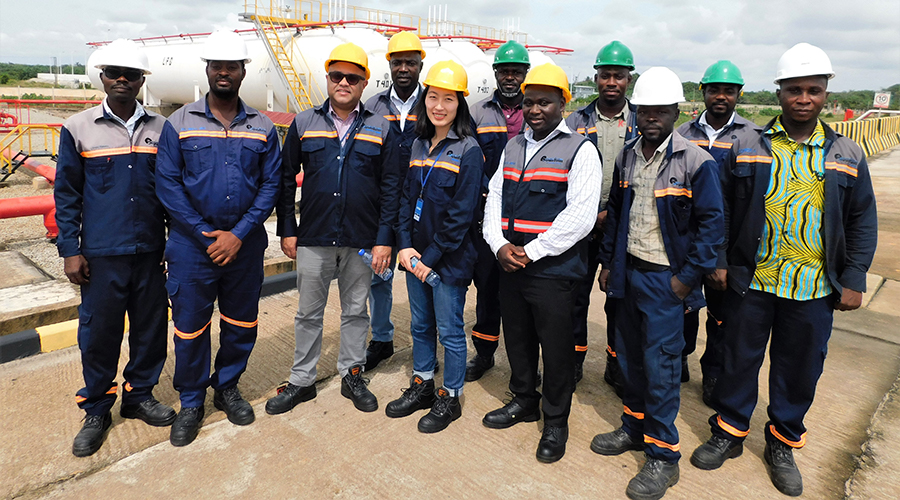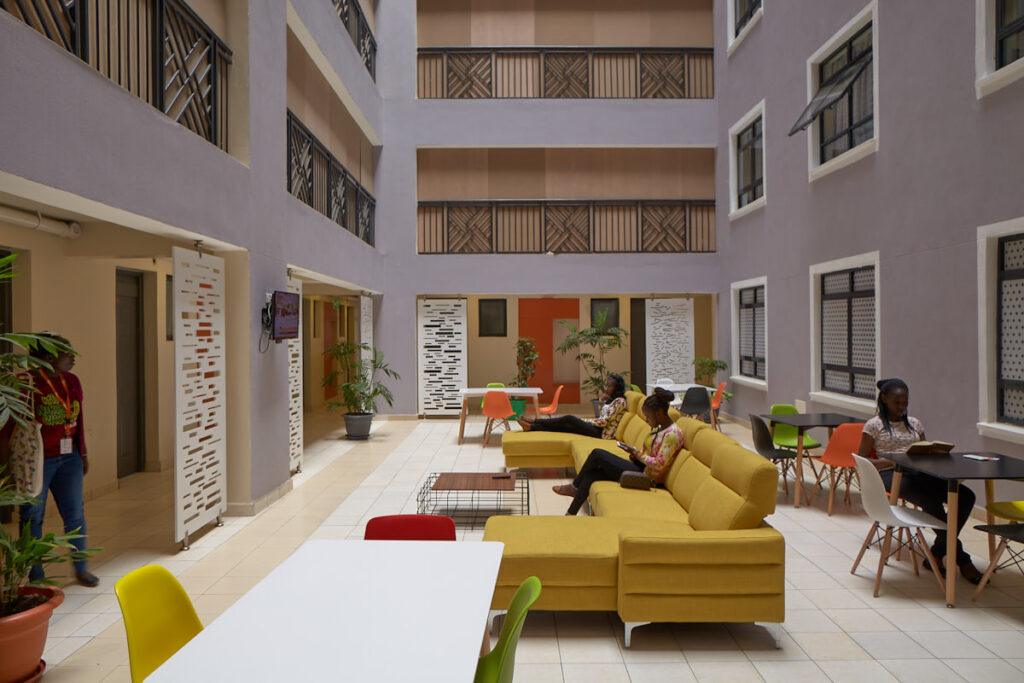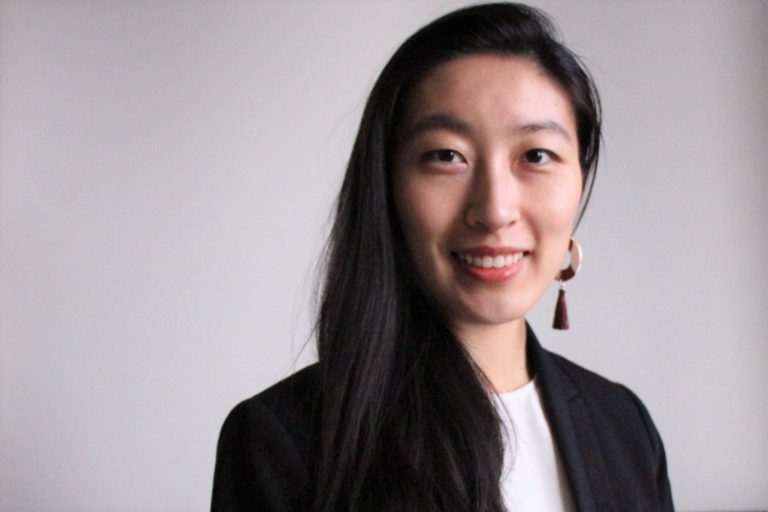GuarantCo: “Doing our best to make ourselves superfluous”
“Our ultimate aim is to reduce poverty in low-income countries by becoming a centre of excellence for local-currency credit solutions for infrastructure finance.” Says Nicole Xu of GuarantCo. They provide guarantees for infrastructure investments in low- to lower-middle income countries. Read the full interview.
“Take student housing in Kenya.” Analyst Nicole Xu is explaining the role played by GuarantCo in providing guarantees for infrastructure projects in low-income countries. “There are a lot of young people in Kenya and they all want to get an education for themselves. Many of them go to university in the capital city, Nairobi. But there’s a chronic shortage of student accommodation. While university enrolment has shot up from 27,000 in 1990 to around 550,000 today, there are fewer than 40,000 beds available for students, which means there’s a huge shortfall. Not only that, but the quality of the accommodation is really poor.”
“So, in 2019, they came to us. We worked out a credit guarantee to cover 50% of the principal and interest due under their KES 5 billion investment programme. That led to the project getting a credit rating from Moody’s that was one notch higher than Kenya’s sovereign rating. This enabled Acorn to gain trust from local investors and raise the necessary funds.”
Lots of firsts
Nicole Xu doesn’t hide her pride in Acorn’s achievement: “The project has a lot of firsts: it was the first green bond in East Africa; the buildings are green-certified: they are energy-efficient and meet international green building standards for water, energy and construction materials. That means low operating costs and a low-carbon impact in the long term. The green bond itself is also the first Kenyan bond to be listed on the International Securities Market of the London stock exchange, which is what happened in January 2020.”
Access to infrastructure
It’s an excellent illustration of how GuarantCo works. Based in London and funded by six governments, GuarantCo is part of the Private Infrastructure Development Group (PIDG) and is fund-managed by Cardano Development. Nicole Xu: “Our role is first and foremost to help people get access to basic infrastructure. That’s very important. The deal process itself is also a learning curve that helps the country in question to develop a financial infrastructure on the back of its physical infrastructure. It’s also about familiarising the local banking sector and capital markets with the risks. A lot of this capacity-building has a long and profound impact on markets. That’s a huge part of what we do. If we do a good job, they can then continue on their own. They don’t need us any more. In short, we do our best to make ourselves superfluous.”
But it’s not simply a question of providing credit guarantees to anyone on request. “We set very high health, safety, environmental and social standards in the projects we support. We also want to empower women through our projects, whether through employment or in the design of the project. Our ultimate aim is to reduce poverty in low-income countries by becoming a centre of excellence for local-currency credit solutions for infrastructure finance.”
Getting money into infrastructure
In a nutshell, GuarantCo provides guarantees for infrastructure investments in low- to lower-middle income countries. “The majority of the loans we guarantee are in local currency. By doing that, we achieve three things. First, we help make more money available for infrastructure. So more roads, more renewable power plants, water plants, social infrastructure can be built. This is of course critical for local people, who wouldn’t otherwise have access to this type of basic infrastructure.”
Lengthening the tenor
“The third benefit we bring is to lengthen the tenor of the funding. An infrastructure project, say a renewable power plant, usually runs for 20 or 30 years. But the funding provided by banks or investors is typically quite short-term: under 10 years. And in some African countries, the maximum tenor may be just five years. So there’s a big tenor gap there to be bridged: you’re essentially squeezing all the repayments into that five- or ten-year period. By offering longer tenors, we are filling a gap in the market.”
Our ultimate aim is to reduce poverty in low-income countries by becoming a centre of excellence for local-currency credit solutions for infrastructure finance.
Infrastructure
Why the focus on infrastructure? “It’s one of the basic human needs. It’s at the base of the Maslow pyramid: people need housing, access to power and water and communication. Those living in developed countries tend to take all these things for granted, but they’re actually not well developed in many parts of the world. We believe that giving people access to infrastructure is the first step in building a better foundation for economic growth. It also has a huge impact on their physical health and mental well-being.”
“Our special focus is on sustainable infrastructure. So we want all our new transactions to be aligned with the Paris Agreement. And we make sure they are environmentally friendly and that they either mitigate carbon emission or help local people and local businesses transition to a low-carbon future.”
An art and a science
Providing credit guarantees does involve a certain amount of risk. So how does GuarantCo calculate the degree of risk? Nicole Xu reckons that it’s both an art and a science. “We do a lot of due diligence. Before Covid-19, we used to visit projects, travel to the country in question to meet the sponsor, the contractor and the regulator. We also work closely with advisors – from technical advisors to legal specialists and insurance consultants – who look at the project from all sorts of perspectives and unpack all the risks. Since Covid-19, their role has become even more important. But it’s also an art because, even though we have all these quantitative tools, there’s still a lot of subjective assessment. We need to make sure that the local company we’re working with has got a good management team in place: that they’re capable and know what they’re doing. That there’s a sound political environment. ESG risks are at the core of this – that means making sure that infrastructure investments will help to deliver a low-carbon economy.”
While there are commercial players who offer similar products in the developed markets, these are not available to most low- and middle-income countries. “The private sector is reluctant to engage because of the high perceived risk, the relatively small deal size, and the long transaction cycle.”
Local GuarantCos
The GuarantCo model is one that holds a great deal of promise for the future. So much so that it is actively seeking to produce offspring of its own in a number relatively mature, emerging markets. Nicole Xu: “We are supporting the establishment of local GuarantCos in a number of African and Asian countries. So far, we have been involved in partnerships that have set up InfraCredit in Nigeria and InfraZamin in Pakistan. Basically, they do the same thing as us. But, because they have a well-trained local team and a strong local network, they’re well-placed to take over from us. Hopefully, this will enable a local commercial credit-guarantee market to develop – and allow us to take a step back. That’s the ultimate measure of our success.”




